 There are doctors in Germany who are working overtime to convince us that black cohosh is a valuable treatment for menopausal symptoms.
There are doctors in Germany who are working overtime to convince us that black cohosh is a valuable treatment for menopausal symptoms.
I’m not buying it. But then, I’m not in menopause. Continue reading Trying hard to generate positive research results for black cohosh →
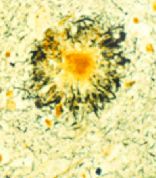 These recommendations, from a group of experts, take a narrow view of Alzheimer’s disease. They focus on early detection and the use of existing prescription drugs.
These recommendations, from a group of experts, take a narrow view of Alzheimer’s disease. They focus on early detection and the use of existing prescription drugs.
That’s fine as far as it goes, but what about those with advanced Alzheimer’s? Why not develop a more comprehensive approach?
If I might quote Paul Harvey, “here’s the rest of the story.” Continue reading Dissapointing recommendations to treat Alzheimer’s disease →
 It’s is the third time this year the FDA has identified a “natural” product sold via the Internet for the treatment of impotence (erectile dysfunction) that was adulterated with the prescription drug tadalafil (Cialis). Continue reading Consumer alert: FDA recalls Long Weekend →
It’s is the third time this year the FDA has identified a “natural” product sold via the Internet for the treatment of impotence (erectile dysfunction) that was adulterated with the prescription drug tadalafil (Cialis). Continue reading Consumer alert: FDA recalls Long Weekend →
 Has your worst nightmare become real, or is this the start of sanity for the Dietary Supplement Health and Education Act of 1994 (DSHEA)?
Has your worst nightmare become real, or is this the start of sanity for the Dietary Supplement Health and Education Act of 1994 (DSHEA)?
It’s not necessary to comment on this. More importantly… Continue reading FDA takes control →
 This review was presented previously at the American College of Clinical Pharmacology meeting and is reported here. It’s now been published in The Lancet Infectious Diseases.
This review was presented previously at the American College of Clinical Pharmacology meeting and is reported here. It’s now been published in The Lancet Infectious Diseases.
However, since there’s no abstract available, I’ve used the article published on Inthenews.co.uk. Continue reading A positive review for echinacea and the common cold →
 Drs. Victoria Catenacci and Holly Wyatt from the University of Colorado at Denver reviewed the literature and came to the following conclusions. Continue reading The contribution of physical activity to weight loss →
Drs. Victoria Catenacci and Holly Wyatt from the University of Colorado at Denver reviewed the literature and came to the following conclusions. Continue reading The contribution of physical activity to weight loss →
 The Consumer Reports website rates volumetrics as the number one diet in terms of sustainable weight loss.
The Consumer Reports website rates volumetrics as the number one diet in terms of sustainable weight loss.
And, of course, there’s a book to get you started. Lynda Lippin reviewed The Volumetrics Eating Plan by Dr. Barbara Rolls (photo), and was impressed.
Continue reading Looking for a new diet? Highest rating goes to Volumetrics →
 SARS, of course, is severe acute respiratory syndrome — a viral pneumonia. There was one major epidemic in late 2002 where about 10% of those infected died.
SARS, of course, is severe acute respiratory syndrome — a viral pneumonia. There was one major epidemic in late 2002 where about 10% of those infected died.
In this study, a concoction of natural herbal medicines (NHM) plus routine western treatment appeared to be safe, with evidence of benefit over western treatment alone. Continue reading Natural herbal medicine used to complement SARS treatment →
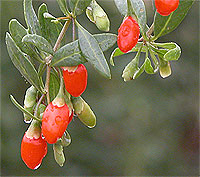 Time Magazine named the Himalayan Goji berry as the breakout superfruit of the year!
Time Magazine named the Himalayan Goji berry as the breakout superfruit of the year!
It’s promoted to
- protect the liver
- help eyesight
- improve sexual function and fertility
- strengthen the legs
- boost immune function
- improve circulation
- promote longevity
Wow! That’s enough for me..
…to look for evidenced-based support.
Continue reading Goji berries: super fruit or super hype? →
 With financial support from the Australian government, the institute will develop national priorities for complementary medical research and coordinate work on these priorities with other research bodies. Continue reading Australia will initiate a National Institute for Complementary Medicine →
With financial support from the Australian government, the institute will develop national priorities for complementary medical research and coordinate work on these priorities with other research bodies. Continue reading Australia will initiate a National Institute for Complementary Medicine →
 Researchers have cloned a gene from wild wheat that increases its protein, zinc, and iron content. The impact of this research could improve nutrition, worldwide.
Researchers have cloned a gene from wild wheat that increases its protein, zinc, and iron content. The impact of this research could improve nutrition, worldwide.
Continue reading Increased protein and mineral content from genetically engineered wheat →
 An anal fissure is a painful condition affecting the far end of the intestines. The antimicrobial, anti-inflammatory, and pain relieving properties of clove oil provide a rationale for its use in this study. Continue reading Treating anal fistulas with clove oil →
An anal fissure is a painful condition affecting the far end of the intestines. The antimicrobial, anti-inflammatory, and pain relieving properties of clove oil provide a rationale for its use in this study. Continue reading Treating anal fistulas with clove oil →
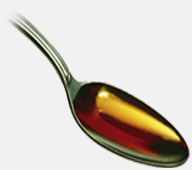 There’s growing interest in the potential effect of omega-3 fatty acids on depression and subsequent afflictions such as heart disease.
There’s growing interest in the potential effect of omega-3 fatty acids on depression and subsequent afflictions such as heart disease.
Here’s a study using the granddaddy of omega-3 formulations — cod-liver oil. Continue reading Using cod-liver oil to lower the risk of depression →
 So many options, so little success.
So many options, so little success.
You can follow any program you want. But here are some common sense recommendations from NutritionData.com. Continue reading Sound advice for achieving weight loss →
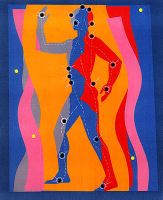 ACE (angiotensin-converting enzyme) inhibitors are a group of drugs used to treat high blood pressure and congestive heart failure. In most cases they are drugs of first choice.
ACE (angiotensin-converting enzyme) inhibitors are a group of drugs used to treat high blood pressure and congestive heart failure. In most cases they are drugs of first choice.
Now, a study by Dr. Frank Flachskampf and colleagues concludes that acupuncture likely represents an attractive option. Continue reading Acupuncture is comparable to ACE inhibitors to lower blood pressure →
 Health Canada has advised consumers not to use these products.
Health Canada has advised consumers not to use these products.
They contain clonazepam (Klonopin), a benzodiazepine drug (think Valium, Atavin, Restoril), which can be habit-forming when used for as little as a few months. Continue reading Consumer alert: Optimum Health Care SleePlus TCM or BYL SleePlus →
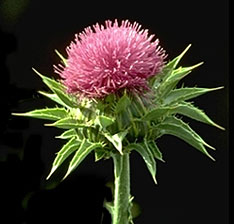 At the end of 2006 I listed milk thistle as a supplement worth additional research. This was because of a study in people with diabetes where milk thistle was associated with a decline in A1c circuclating in blood.
At the end of 2006 I listed milk thistle as a supplement worth additional research. This was because of a study in people with diabetes where milk thistle was associated with a decline in A1c circuclating in blood.
Now, ConsumerLab.com has tested 12 milk thistle products. Continue reading Poor quality control with milk thistle supplements →
 PRNewswire-USNewswire reports that the Appeals Court for the State of Pennsylvania has ruled against Stephen Barrett (photo), a long-time critic of chiropractic and alternative health care. The judge refused to overturn a 2005 decision against Barrett.
PRNewswire-USNewswire reports that the Appeals Court for the State of Pennsylvania has ruled against Stephen Barrett (photo), a long-time critic of chiropractic and alternative health care. The judge refused to overturn a 2005 decision against Barrett.
Here’s the history behind the case. Continue reading Stephen Barrett loses appeal to court case against chiropractor →
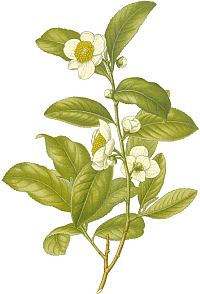 On the positive side, green tea is cheap, widely available, and has low toxicity. Now, we just need some good studies of efficacy.
On the positive side, green tea is cheap, widely available, and has low toxicity. Now, we just need some good studies of efficacy.
Writing in the Mayo Clinic Proceedings, 5 researchers summarized what we know so far. Continue reading The potential of green tea for cancer prevention and treatment →
 The New York Times reports, “The [FDA] advisory panel voted unanimously, 14 to 0, against recommending the drug [rimonabant, Acomplia, Zimulti], saying there was inadequate evidence of its safety. The FDA is not required to follow this advice, but it typically does.”
The New York Times reports, “The [FDA] advisory panel voted unanimously, 14 to 0, against recommending the drug [rimonabant, Acomplia, Zimulti], saying there was inadequate evidence of its safety. The FDA is not required to follow this advice, but it typically does.”
The report is interesting to this blog because rimonabant works by blocking cannabinoids receptors in the brain. Continue reading Cannabinoid-receptor blocker will probably not be sold in the US →
Complementary and Alternative Medicine: Fair, Balanced, and to the Point
 There are doctors in Germany who are working overtime to convince us that black cohosh is a valuable treatment for menopausal symptoms.
There are doctors in Germany who are working overtime to convince us that black cohosh is a valuable treatment for menopausal symptoms. These
These  It’s is the third time this year the FDA has identified a “natural”
It’s is the third time this year the FDA has identified a “natural”  This review was presented previously at the American College of Clinical Pharmacology meeting and is reported
This review was presented previously at the American College of Clinical Pharmacology meeting and is reported  Drs. Victoria Catenacci and Holly Wyatt from the University of Colorado at Denver
Drs. Victoria Catenacci and Holly Wyatt from the University of Colorado at Denver  The Consumer Reports
The Consumer Reports  SARS, of course, is severe acute respiratory syndrome — a viral pneumonia. There was one major epidemic in late 2002 where about 10% of those infected died.
SARS, of course, is severe acute respiratory syndrome — a viral pneumonia. There was one major epidemic in late 2002 where about 10% of those infected died. Time Magazine named the Himalayan Goji berry as the breakout superfruit of the year!
Time Magazine named the Himalayan Goji berry as the breakout superfruit of the year! With financial support from the Australian government, the
With financial support from the Australian government, the  Researchers have cloned a gene from wild wheat that increases its protein, zinc, and iron content. The impact of this research could improve nutrition, worldwide.
Researchers have cloned a gene from wild wheat that increases its protein, zinc, and iron content. The impact of this research could improve nutrition, worldwide. ACE (angiotensin-converting enzyme) inhibitors are a group of drugs used to treat high blood pressure and congestive heart failure. In most cases they are drugs of first choice.
ACE (angiotensin-converting enzyme) inhibitors are a group of drugs used to treat high blood pressure and congestive heart failure. In most cases they are drugs of first choice. At the end of 2006 I
At the end of 2006 I  PRNewswire-USNewswire
PRNewswire-USNewswire  On the positive side, green tea is cheap, widely available, and has low toxicity. Now, we just need some good studies of efficacy.
On the positive side, green tea is cheap, widely available, and has low toxicity. Now, we just need some good studies of efficacy. The New York Times
The New York Times